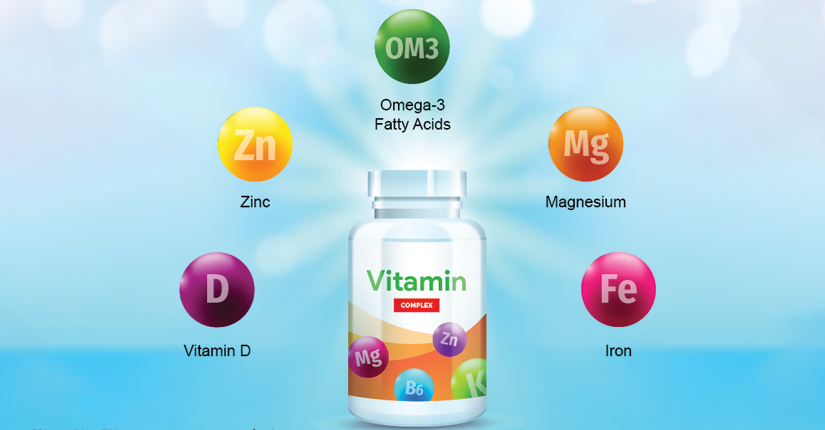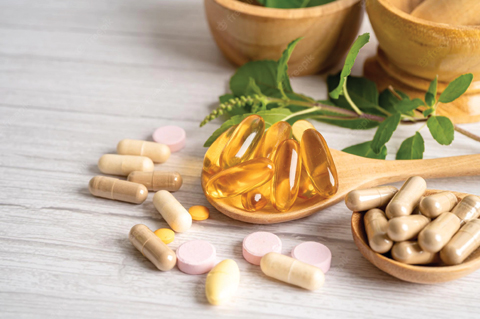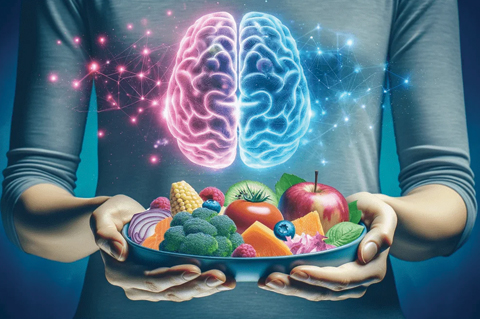Organic supplementation, including omega-3 fatty oils, botanical remedies, and multivitamins, has sparked a lot of curiosity. It has shown benefits towards the therapy of attention-deficit hyperactivity disorder (ADHD). Almost all of these medications have equivocal studies. Although there is a suggestion that they might aid persons having ADHD who are nutritionally deficient.
One of the popular treatments that are psychostimulant drugs is often prescribed for ADHD supplements for adults. Psychostimulant drugs help more than 70% of youngsters having ADHD. Nevertheless, supplementation as a complementary and alternative medicine (CAM) therapy in ADHD is gaining popularity. One can utilise the therapies in continuation or in place of medications.
Natural ADHD supplements for adults
1. Iron supplements
Our body utilises iron to build haemoglobin in red blood cells. Hemoglobin comprises a protein that carries oxygen through your cells. Meat (particularly red meat), canned tuna, as well as dark green leafy vegetables, are all good providers. Discovery from a 2014 survey brought to attention a link connecting iron insufficiency with ADHD in adolescents. This study could not establish whether iron insufficiency leads to ADHD. However, it did imply how it may have a role in the development of ADHD signs. Especially when combined alongside genes, environmental warning factors, the lack of iron supplements, as well as a poor diet.
2. Vitamins and minerals
Vitamins, as well as minerals, include necessary components that must be a part of your nutrition for the system to operate properly. Vitamins are found in vegetables as well as animals, and minerals are found in soil as well as water, which are then absorbed into the foods we consume. However, vitamins have still not been proven to have a significant effect on ADHD; however, they could help to rectify deficiencies that are linked to ADHD characteristics. The amount of magnesium, copper, or even other vitamins, as well as minerals, to take depends on the individual.
3. Omega-3 fatty acids
Omega-3 fatty oils are indeed a vital ingredient that the human body cannot make and should be a part of your diet. Fatty fishes like tuna or salmon, and grains like flax or chia, as well as nuts like walnuts, are all efficient providers. Omega-3 supplementation appears to enhance clinical signs as well as cognitive function in youngsters or teenagers having ADHD, according to the study. Supplementing with omega-3 fatty acids is less efficient than taking stimulant medicine.
Advantages of Using Natural Supplements for ADHD
Although natural ADHD supplements for adults do not offer a cure, it is a useful supplementary treatment option that can be used to improve the lives of individuals, including those who are in search of a non-pharmaceutical, more natural alternative and supplement access to the illness. The enlarged advantages of considering natural supplements in the management of ADHD are as below:
Enhance Brain and Cognitive Health
Most of these natural supplements have nutrients that are vital in the development and functioning of the brain. As an example, the contents of omega-3 fatty acids ( EPA and DHA ) play a key role in preserving the status of brain cell membranes and help the neurotransmitter pathways, which are related to attention and memory. Zinc can act on neurotransmitters and play a role in regulating dopamine, the major contributor to ADHD. Magnesium aids in neural transmission and helps in relaxation of the brain. At the right doses, these nutrients can also enhance concentration, decrease impulsivity as well and improve decision-making.
Treat Subclinical Nutritional Insufficiencies
Science has established that those with ADHD tend to have low amounts of some nutrients, such as iron, zinc, magnesium, and B vitamins. These inefficiencies may harm the synthesis of neurotransmitters and brain performance. However, by striking a balance at optimal levels, supplementation also tempers neurological calculus and, possibly, improves the symptoms. An example is the iron supplementation because those who have low ferritin have demonstrated improved attention span and endurance.
Minimize the Risks of Side Effects
In comparison with synthetic ADHD supplements for adults, which may produce secondary effects, leading to loss of appetite, sleep problems, or mood swings, natural supplements usually show less distinct and fewer side effects as long as they are used as recommended. To all my stimulant-sensitive individuals, or to all people who do not want to build up long-term dependency and want to use something that would help them manage the symptoms, supplements can be a less harsh, less harmful experience under professional supervision.
Wrapping up
Doctors see stimulant drugs as the best treatment for ADHD and therefore do not prefer alternative options. While nutritional supplements might not be able to alleviate ADHD problems on their own, they could assist in the management of deficiencies that might exacerbate problems. Consult your healthcare provider prior to beginning any ADHD supplements for adults.






